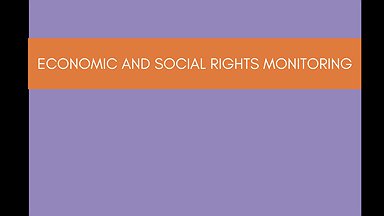Litigation is a critical tactic for claiming economic and social rights and key means of ensuring accountability for rights violations. Over the last two decades, advocates and activists have been able to use the courts to mount successful challenges to a broad range of unjust and discriminatory laws and policies related to economic and social rights. Cases have been brought to address, amongst other things, the lack access to HIV/AIDS medicines, discriminatory housing policies, and the availability of furniture in schools. While legal enforcement of economic and social rights has moved beyond its infancy, there remain unique challenges in this area.
In collaboration with partner organizations, CESR works to strengthen legal enforcement of economic and social rights in light of these challenges. From identifying, collecting and analyzing evidence, to monitoring the implementation of successful judicial decisions, CESR is engaged in work across the full cycle of legal enforcement. Our work seeks primarily to identify ways in which empirical research and quantitative indicators and benchmarks can be deployed, in order to strengthen evidence of economic and social rights violations; build persuasive legal claims based on this evidence; and to improve implementation of judicial decisions.
These tasks are urgent, because as, Bruce Porter, director of the Social Rights Advocacy Center (SRAC) in Canada, has highlighted, "what is most critical at this juncture, is that the two worlds of quantitative measurement and contextual, transformative rights claiming be better integrated through enhanced collaboration and mutual support" while at the same time ensuring that the voices of those with technical monitoring expertise do not displace those with "experiential expertise" – the rights claimants and the social movements working with them.
Economic and social rights litigation which seeks to enforce states’ positive obligations has proven to be a highly complex matter for both litigators and the courts. This kind of litigation poses a set of distinct interdisciplinary, analytical and practical challenges related to evidence that require special planning and consideration from the outset of the litigation cycle. CESR’s Evidence Project seeks to better understand the role and use of scientific, technical and other specialized evidence and foster a dialogue among advocates, judges and activists on the development of tools and resources that may improve understanding and use of such evidence.
Through partnerships and as a member of the Strategic Litigation Working Group of ESCR-Net, CESR also supports or intervenes in international and domestic legal litigation at times. CESR has provided information and analysis highlighting the resource components of a state’s human rights obligations, along with identifying human rights indicators and benchmarks necessary for building a compelling case. In late 2017, CESR participated in a third-party intervention to a communication to the Committee on Economic, Social and Cultural Rights’ (CESCR) regarding social protection for domestic workers in Ecuador under the Optional Protocol to the International Covenant on Economic, Social and Cultural Rights (OP-ICESCR), for example.
CESR also seeks to improve methods for monitoring the implementation of judicial decisions. Projects in this area include work with the Legal Resources Centre (LRC) in South Africa, monitoring the implementation of a provincial court decision on the right to education. Making use of CESR’s OPERA Framework, the project identified targets and indicators and gathered related information, including on resource allocation and expenditure by the Ministry of Education, to track progress on the implementation of court orders. CESR is also working to monitor the implementation of CESCR’s decision under the OP-ICESCR in the case of MBD v. Spain, a joint project of the Strategic Litigation and Monitoring Working Groups of ESCR-Net.
